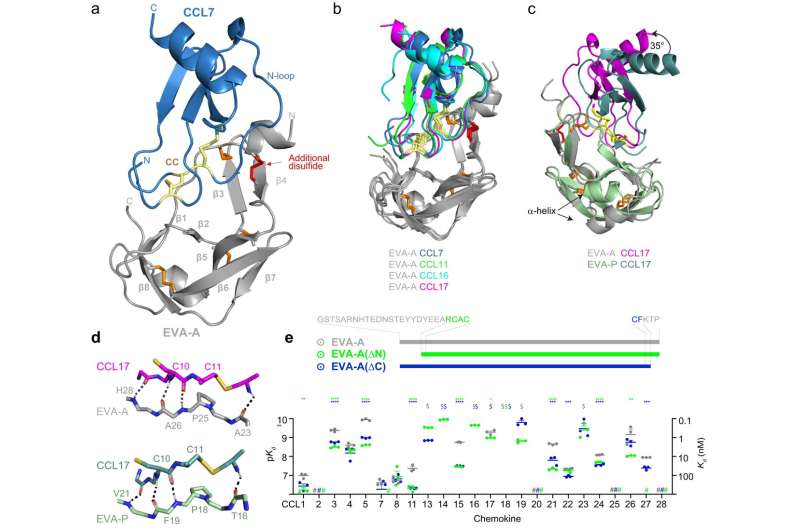This article has been reviewed according to Science X's editorial process and policies. Editors have highlighted the following attributes while ensuring the content's credibility:
fact-checked
peer-reviewed publication
trusted source
proofread
The natural defenses of ticks could help improve anti-inflammatory drugs

Research is using ticks to help unlock better ways to fight inflammation, which causes considerable suffering in people globally.
The Monash Biomedicine Discovery Institute-led team has 'hijacked' an anti-inflammatory mechanism used by ticks to block the activity of proteins important in human inflammatory diseases.
Chronic inflammatory diseases like atherosclerosis, pulmonary fibrosis, rheumatoid arthritis and cancers cause much suffering worldwide.
The associated inflammation is caused by the release of proteins called chemokines in the affected tissues, so researchers are seeking ways to block the activity of chemokines.
Conducted by Ph.D. student Shankar Devkota and published in Nature Communications, this study discovered a new family of tick salivary proteins called A3 evasins.
These evasins can block numerous chemokines, suggesting they could be repurposed to target chemokines involved in human inflammatory diseases.
By analyzing the 3D structures of these evasins and their interactions with chemokines, the team designed and engineered evasin variants that inhibit chemokines involved in atherosclerosis and rheumatoid arthritis.
Co-senior Author Dr. Ram Bhusal, of the Monash Biomedicine Discovery Institute, said this proof-of-principle study laid a foundation for the future development of engineered evasins that could be used to develop improved inflammation treatments.
"It turns out that ticks have naturally evolved the ability to block chemokine-driven inflammation, which enables them to live on their hosts for extended periods without the host being aware of them," he said.
Dr. Bhusal said the tick evasins were special because no current anti-inflammatory drugs were designed to target chemokines directly.
"The tick-derived evasins represent a novel class of anti-inflammatory agents with a distinct mode of action to inhibit chemokines," he said. "As such, they offer a fresh perspective and an alternative strategy for reducing inflammation in the body."
Co-senior author Professor Martin Stone said more research and human trials were needed, but the development was promising.
"This finding is significant because it opens up possibilities for developing a new generation of anti-inflammatory drugs," he said.
"These new drugs could improve the treatment options for patients with chronic inflammatory diseases, potentially saving lives and reducing suffering."
More information: Shankar Raj Devkota et al, Engineering broad-spectrum inhibitors of inflammatory chemokines from subclass A3 tick evasins, Nature Communications (2023). DOI: 10.1038/s41467-023-39879-3
Journal information: Nature Communications
Provided by Monash University





















